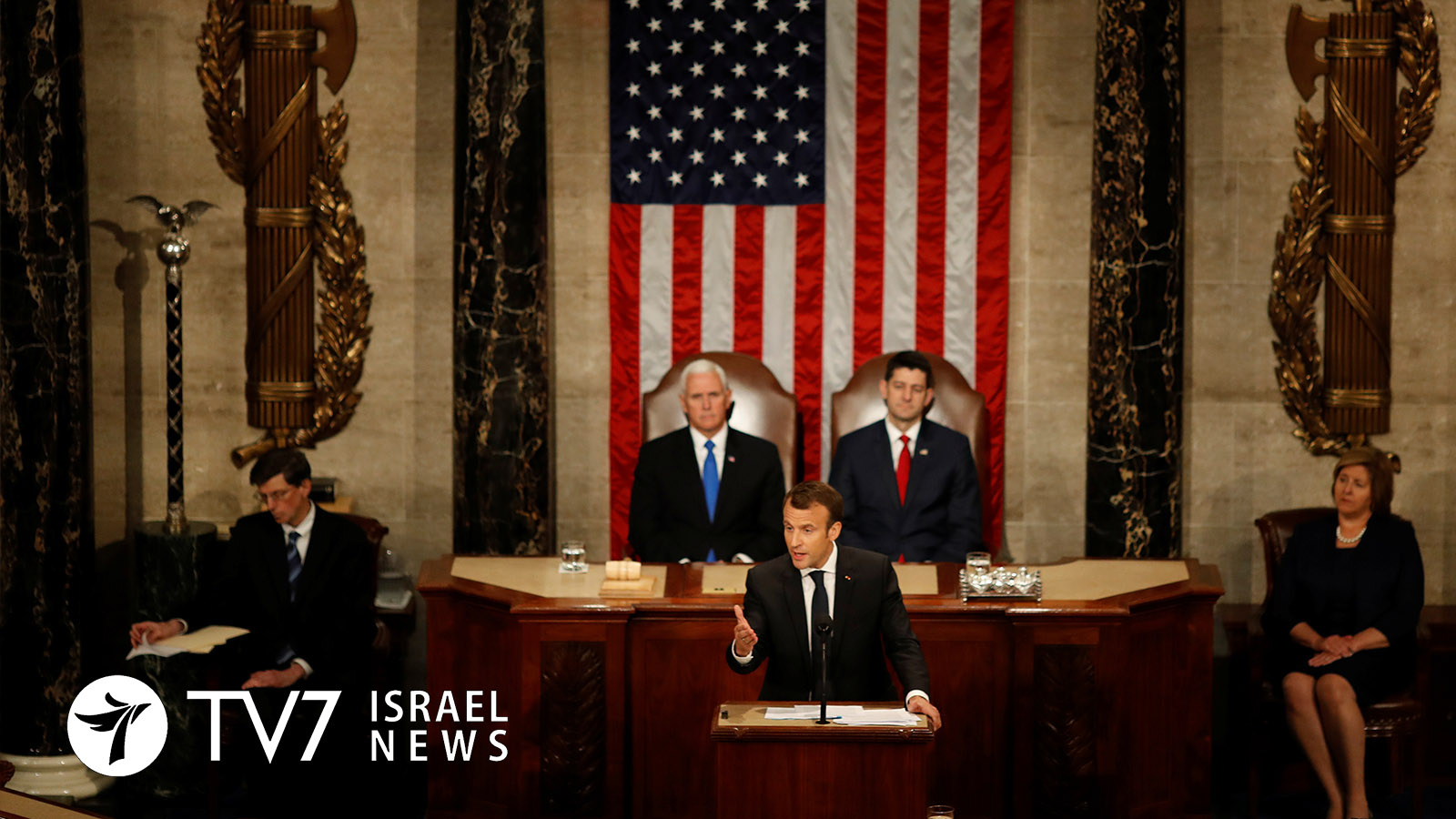French President Emmanuel Macron called on the United States not to abandon the 2015 nuclear agreement with Iran until a broader international accord is reached that would address all of the concerns voiced by both the U.S. Administration and its European allies. Macron stressed, during a joint meeting of Congress, that while the current multinational nuclear deal with the Islamic Republic “was not perfect,” Paris will not leave the agreement and believes it must “remain in place until a replacement was forged.” “There is an existing framework called the JCPOA to control the nuclear activity of Iran. We signed it at the initiative of the United States. We signed it, both the United States and France. That is why we cannot say we should get rid of it like that. But it is true to say that this agreement may not address all concerns and very important concerns. This is true. But we should not abandon it without having something substantial and more substantial instead. That’s my position. That’s why France will not leave the JCPOA, because we signed it. Your president and your country will have to take in the current days and weeks its own responsibilities regarding this issue. But what I want to do and what we decided together with your president is that we can work on a more comprehensive deal addressing all these concerns,” French President Emmanuel Macron said.
While President Macron emphasized the need to ensure stability across the Middle East, and make all efforts necessary to avoid a regional war with Iran, the French Republic’s objective is aligned with that of the United States, to take all necessary measures to assure that “Iran shall never possess any nuclear weapons.” “As for Iran, our objective is clear. Iran shall never possess any nuclear weapons — not now, not in five years, not in ten years, never,” Macron Said.
Meanwhile, U.S. Assistant Secretary of State for Intl. Security and Nonproliferation Christopher A. Ford revealed that the United States is not seeking to reopen or renegotiate the Joint Comprehensive Plan of Action – which is the technical term of the nuclear deal with Iran – but hopes to stay in it to fix its flaws with a supplementary agreement. While President Macron noted during his visit to Washington a probable American pullout from the nuclear agreement, President Trump’s envoy to negotiations with Britain, France and Germany on “fixing the flaws of the nuclear accord” emphasized that Washington is seeking to formulate with its European partners an additional-parallel-deal that would impose needed restrictions on Iran to quench Western concerns. “We are not aiming to renegotiate the JCPOA (Joint Comprehensive Plan of Action) or reopen it or change its terms. We are seeking a supplemental agreement that would in some fashion layer upon it a series of additional rules that help answer – restrictions or terms or whatever you want to call it, parameters — that will help answer these challenges more effectively. It’s not, you know, it i not a violation of the, of the START (Strategic Arms Reduction Treaty) treaty to negotiate new START and to have parallel rules that follow on to build on the progress made before.” / “If we were able to meet that challenge of bringing our partners together to this end, President Trump made it clear that his decision not to renew the sanctions waivers would, would be revised, and that is where I hope we, we are now today,” Christopher A. Ford, U.S. Assistant Secretary of State for Intl. Security and Nonproliferation said.
President Trump has set a deadline on May 12th for Washington’s European allies, including Paris, London and Berlin, to “fix the flaws” of the multinational deal; to provide proper constrains on all concerns regarding the Islamic Republic – including Iran’s ballistic missile program and aggressive actions across the Middle East. “I hope the JCPOA has been saved in the context of the challenge that President Trump set for us, of trying to remain within the deal but in the context of moving forward with our partners on an approach that stands a pretty good chance of turning what was in effect a temporary postponement of an Iranian proliferation challenge into a more enduring answer that makes both the Middle East and the security of our friends and allies, ourselves and many people around the world more secure and more assured,” A. Ford said.
